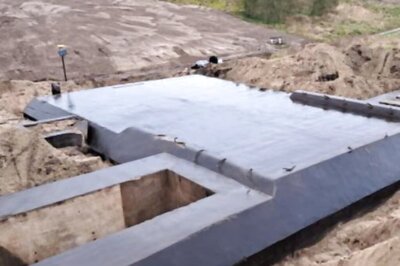
views
New Delhi: The opposition to the National Counter Terrorism Centre is growing with more states coming out against it. At the meeting of states director generals of police and chief secretaries convened by the Union Home Ministry in New Delhi on Monday Chhattisgarh, Gujarat and Bihar came out strongly against the NCTC.
Chhattisgarh, Gujarat and Bihar were joined by officials from Odisha, West Bengal and Madhya Pradesh who raised their objections to the NCTC at the high-level meeting chaired by Home Secretary RK Singh. The states claimed that NCTC would allow the Centre to infringe on the powers of the states and undermine the federal structure of the country.
The states also said that the role of state police would be minimised in counter-terror operations if NCTC was operationalised. The opposing states claimed that the Intelligence Bureau was already performing the job and there was no need to give power of arrest as proposed in the new counter-terror unit.
However, all Congress-ruled states and union territories supported the NCTC. Sources said that most states had no objection to the idea of NCTC but were against the powers of search, seizure and arrest that has been given to the counter terrorism body.
Sources also said that the wording of NCTC notification seemed like a command to the states and demanded certain words in the notification be changed. The notification had given the power to arrest, which the states opposed. Tamil Nadu, Madhya Pradesh and Chhattisgarh demanded that the discussion on NCTC be taken to the chief ministers conference as backgrounder.
Some states also objected to the NCTC having an operations wing.
Chiefs of anti-terror units were also present at the meeting.
Over a dozen chief ministers have opposed the creation of the NCTC, maintaining that it would hurt the federal structure of the country.
Odisha Chief Minister Naveen Patnaik and Tamil Nadu Chief Minister J Jayalalithaa have asked Prime Minister Manmohan Singh to convene a meeting of chief ministers to discuss the issue.
In the wake of strong protests by non-Congress chief ministers, the Centre has put on hold the operationalisation of the NCTC from March 1 and has decided to discuss the issue with the state governments.
In a letter to 10 chief ministers, Home Minister P Chidambaram has assured them that the "next steps" on the NCTC would be taken only after the meeting of top officials of the states.
The Home Ministry officials tried to allay the apprehensions of the states, which said empowering the NCTC with Section 43 (A) of the Unlawful Activities (Prevention) Act would infringe on the states' powers. Section 43(A) of Act gives an officer power to arrest and search.
Chidambaram, in his letter, had said the powers conferred under Section 43 (A) of thh Act must be read with the duty under Section 43 (B) to produce the person or article without unnecessary delay before the nearest police station (which will be under the state government).
He had also said the SHO of the police station will take further action in accordance with the provisions of the CrPC.
Patnaik, who had spearheaded the protests on the ground that it would erode the states' powers, in his third letter on the NCTC to the Prime Minister, had opposed the meeting of officials.
"It is imperative that instead of a meeting chaired by the Union Home Secretary, an immediate meeting of chief ministers may be called by you to address the concerns of the states on this very urgent matter regarding the security of the nation," he had told the Prime Minister.
Jayalalithaa and Janata Dal-U, which rules Bihar, had also expressed similar sentiments.
(With additional information from PTI)




















Comments
0 comment